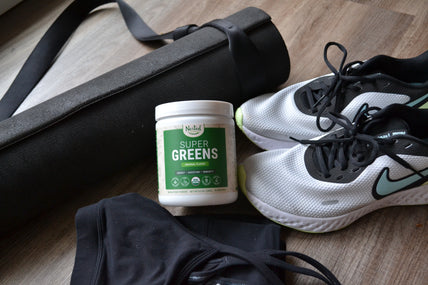The Importance of Alkaline Body Balance

What is An Alkaline State?
Health is a state of complete harmony of the body, mind and spirit. The secret to lasting health is to feed your body well! Every morsel of food you consume affects your health. Period. The foods you eat are, literally, the building blocks for your cells, blood, and organs. They have the ability to increase (or decrease) your waistline, as well as the chance of developing degenerative diseases, like cancer. The foods you consume play a huge role in what your skin looks like, how often you catch a cold, and quite frankly, whether you wake up every morning feeling amazing or like crap. What you eat can change your IQ, improve (or diminish) your memory, and even affect how productive you are at work.
The normal pH of our most important cellular systems and fluids (blood, for example) is designed to range from 7.35-7.45. For pH values, 1 is the most acidic, while 14 is the most alkaline. A pH of 7 is neutral, as its smack in the middle of the acid-base scale.

Acid forming foods consist of:
- Meats
- Dairy products
- Cereals
- Caffeine
- Alcohol
- Sugars
Whereas alkaline forming foods consist of:
- Vegetables
- Green tea
- Fruits
- Nuts & Seeds
- Beans
The most alkalizing foods are typically, dark leafy green vegetables, mainly due to their high chlorophyll content. When you consume acidic food, drinks and get little to no exercise, the body has to work unnecessarily hard to maintain balance. While it’s working to restore equilibrium, the body loses essential vitamins and mineral (calcium, magnesium, and potassium, for example). The offset is thought to increase the susceptibility to disease and illness.
Why Alkaline Balance is Important

The purpose of eating alkaline diet is to help the body maintain a normal pH – not to increase the pH content! What we eat influences how much compensating the body needs to do. The body will generally always maintain a pH of 7.35, but eating acidic foods creates a burden; it disrupts homeostasis. Eating alkalizing foods alleviates the stress of long-term neutralization!
Over-acidification is a vicious cycle; more acids = more toxins = rapid decrease of healthy cells (oxidation).
The more acidic food consumed the more hydrochloric acid the stomach produces. Large amounts of sodium, alcohol, caffeine, and sugars exacerbate dietary metabolic acidosis. Incorporating more alkalizing foods (lemons, dark leafy vegetables, algae, olive oil, herbal teas, ionized alkaline water) helps decrease acid reflux, GERD, the rate of osteoporosis and other chronic diseases.
In an epidemiological study published in the journal of the European Associate for the Study of Diabetes (EADS), Diabetologia, over 66,000 women were followed for 14 years (1). During that time, 1,372 new  cases of diabetes had occurred. Analysis of the participants’ food intake determined that those with the highly acidic diets had a significantly greater risk of diabetes development. An alkaline diet is often “prescribed” to cancer patients or those suffering from chronic illness.
cases of diabetes had occurred. Analysis of the participants’ food intake determined that those with the highly acidic diets had a significantly greater risk of diabetes development. An alkaline diet is often “prescribed” to cancer patients or those suffering from chronic illness.
Want to give it a try? Start by:
- Reducing sugar intake
- Adding more dark leafy greens to meals
- Aim for a fruit and vegetable-rich diet
- Drinking water with lemon
- Add an alkalizing agent, such as super greens to smoothies
- Become conscious of the fats and oils your food is cooked in
- Limit processed foods
- Opt for plant-based foods
References: (1) Guy Fagherazzi et al. Dietary acid load and risk of type 2 diabetes: the E3N-EPIC cohort study. Diabetologia, November 2013



